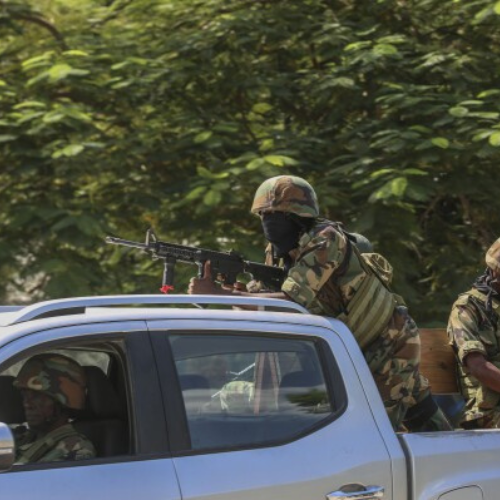The United Nations Security Council made a significant decision to expand the Arms Embargo on Haiti. This move is a response to the growing problem of gang violence and criminal activities in the country. The embargo now covers all types of weapons and ammunition, rather than just small arms and light weapons. This change reflects the urgent situation in Haiti, where many people are living in fear due to the actions of powerful gangs.
Understanding the Situation in Haiti
Haiti is a small Caribbean nation that has faced numerous challenges over the years. It is known for its rich culture but has also been plagued by poverty, political instability, and natural disasters. Recently, things have gotten worse, especially since the assassination of President Jovenel Moïse in July 2021. After his death, gangs gained more power and control over the country, especially in the capital city of Port-au-Prince.
Currently, it is estimated that gangs control about 80% of Port-au-Prince. They have been involved in many violent activities, including killings, rapes, and kidnappings. This surge in violence has made life extremely dangerous for many Haitians. People are afraid to walk the streets, and families are worried about the safety of their loved ones.
The U.N. Security Council has expressed deep concern about the high levels of violence in Haiti. The resolution they passed allows all 193 member countries of the U.N. to take steps to prevent the illegal trafficking of arms and related materials in Haiti. The U.N. experts have found that many of these weapons are coming from the United States, particularly from Florida. This has raised alarms about how easily these dangerous weapons can get into the hands of criminals.
Details of the Arms Embargo
The expanded Arms Embargo was a unanimous decision by the U.N. Security Council, meaning that all member countries agreed on this important action. With this new resolution, the embargo now covers all types of weapons and ammunition. This includes firearms, explosives, and any materials related to weaponry. The goal is to limit the gangs’ access to arms and reduce the violence that is affecting everyday life in Haiti.
Severe Blow to Michel Martelly; US Sanctions Ex-Haiti President Over Drug Trade
In addition to the Arms Embargo, the resolution also extends a travel ban and an asset freeze on individuals who are on the U.N. sanctions blacklist. This list includes gang leaders and others involved in criminal activities. Recently, two new names were added to this list, one of which is Elan Luckson, the leader of the Gran Grif gang. His gang was responsible for a horrific massacre that left at least 115 people dead in the town of Pont-Sondé. The other individual added to the list is Victor Prophane, a former member of the Haitian parliament who is accused of being involved in arms trafficking.
The Security Council also mentioned the growing need for better management of police weapons and ammunition in Haiti. They encouraged the Haitian government to strengthen its control over police arms and to improve border and customs checks. This is essential to prevent the illegal flow of weapons into the country and to ensure that weapons are not used for criminal activities.
The Role of International Forces
As part of the ongoing efforts to stabilize Haiti, the U.N. Security Council voted in early October to extend the mandate of a multinational force led by Kenya. This force aims to help the Haitian National Police restore order and fight against the gangs. Currently, there are about 400 Kenyan officers in Haiti, and they plan to send an additional 600 officers next month. This increase in personnel is critical, as the situation continues to deteriorate.
Other countries, including Jamaica, have also sent police officers to assist in Haiti. However, the total number of personnel is still far short of the 2,500 officers pledged by several nations. Countries like Chad, Benin, Bangladesh, and Barbados have all committed to providing support, but the numbers are still lacking.
Kenyan President William Ruto recently met with Haiti’s Prime Minister Garry Conille to discuss the situation and emphasize the need for international partners to support the mission. They highlighted that the mission requires more resources and funding to be effective, as its budget is set to run out in March 2025.
The U.N. resolution also included the continuation of a panel of experts tasked with monitoring the implementation of the Arms Embargo for an additional 13 months. This is intended to ensure that the measures are enforced and that the situation in Haiti improves over time.


